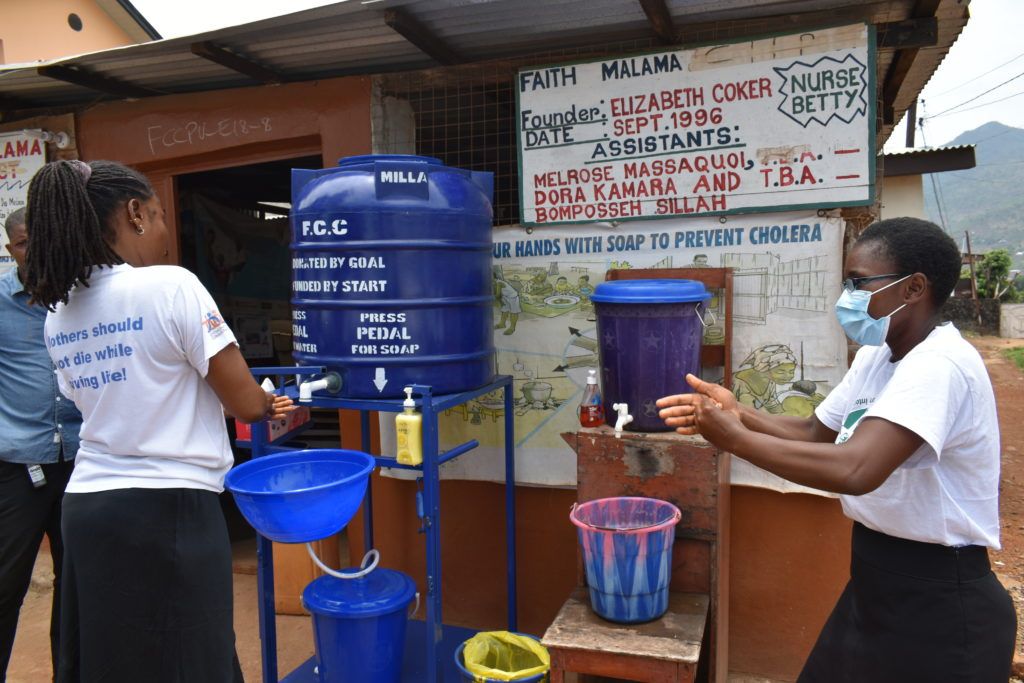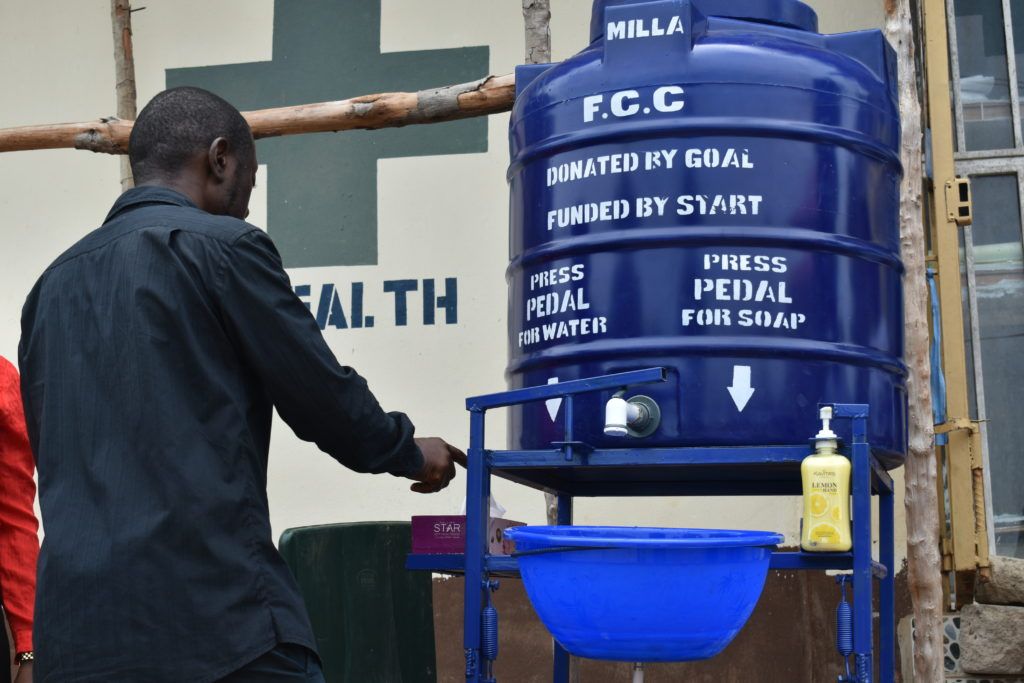 Blogs
Blogs
April 24, 2020 • 4 min read
GOAL's Hygiene Promotion Supervisor in Sierra Leone, Shirley Browne, reflects on her experience responding to Ebola in 2014, and how it has prepared GOAL for COVID-19.
When Ebola broke out in Sierra Leone in 2014, I remember feeling shock and fear. I had never experienced anything like this before, nor had I heard of an outbreak like this in West Africa. We had no idea what Ebola was about, what we were facing, or whether we would be able to overcome it. It was such a new disease in Sierra Leone, and with little knowledge about it came an internal dilemma for me – should I contribute and be part of GOAL’s response, or should I stay at home.
As a social behaviour change professional, I reflected upon this and realised that to fight this highly contagious disease it was vital that people be taught key behaviours. These included proper handwashing, not washing or touching the dead, avoiding funerals and mass gatherings. I had the skills needed and I decided I would help.
Social Behaviour Change Communication (SBCC)

Shirley Browne is GOAL’s Hygiene Promotion Supervisor in Sierra Leone.
There are many deeply rooted practices and traditions in Sierra Leone which hinder Infection Prevention and Control, and therefore Social Behaviour Change Communication (SBCC) is so important to curb the spread of disease.
In Sierra Leone, if someone is sick we take care of them at home first, and then take them to the health centres. But this is deadly when it comes to controlling infectious diseases such as Ebola. As GOAL’s Hygiene Promotion Supervisor, I worked with the Ebola Response Committee and the Ministry of Health and Sanitation (MoHS) to develop key messages, and train hygiene promoters and social mobilisers to go to households to disseminate key messages to prevent the spread.
The power of using mobilisers from communities we were targeting was a key learning for GOAL from the Ebola outbreak. For social behaviour change to be successful it has to be community led and driven. Community members know what is happening in their areas. They identify their issues and know the solutions to them. And communities are far more likely to listen to their own people rather than outsiders.
The Community Led Action (CLA) Approach
GOAL uses the Community Led Action (CLA) approach for social behaviour change in Sierra Leone. The CLA approach empowers the community to do things themselves. We are simply there to guide them through the process and to go from the problem to the solution. CLA works because the solutions are community led and driven. We are simply there to trigger the process.
During the Ebola response, we learned that no one can or should work in isolation. Any response to an emergency should be done in conjunction with the government, relevant partners, and the community. The Ebola response was successful because we were able to compliment the efforts of the different partners and the Government, and different organisations have learned from the Ebola experience.
Ebola and COVID-19

GOAL staff member Mariama demonstrates the handwashing method while wearing a face mask in Freetown, Sierra Leone.
In Sierra Leone, our learning from Ebola will take us a long way in our fight against COVID-19. There are still staff in GOAL who worked on the Ebola response, and we have resources from Ebola we can use and adapt. In addition, we have expertise in Infection Prevention and Control and structures in place which means we are better placed to combat this infectious disease than ever before.
However, while Ebola was an epidemic, COVID-19 is a pandemic. The whole world is experiencing COVID-19, which was not the case for Ebola. As a result, we cannot depend on experts being deployed due to travel restrictions and the fact that every country is fighting the outbreak.
GOAL is at a huge advantage in Sierra Leone in fighting COVID-19 because we have front line workers who were with us during Ebola, and rich experience of social behaviour change, of health system strengthening and supporting the MoHS.
GOAL’s strong relationship with the government both nationally and locally, as well as its experience working during the war, and responding to Ebola and other disasters has helped it respond swiftly to COVID-19. Within days of the first registered cases of COVID-19 here, GOAL was on the ground responding with supplies of portable handwashing stations, soap and tissues to health facilities in Freetown.
Our social mobilisers are busy working with health care workers and communities teaching proper handwashing techniques, as well as delivering key messages on social distancing, wearing masks in public and avoiding touching the face and eyes as much as possible.
I believe our experience during Ebola has been instrumental in making this work smoother and helping us respond faster and more appropriately given the lessons learned from Ebola.


